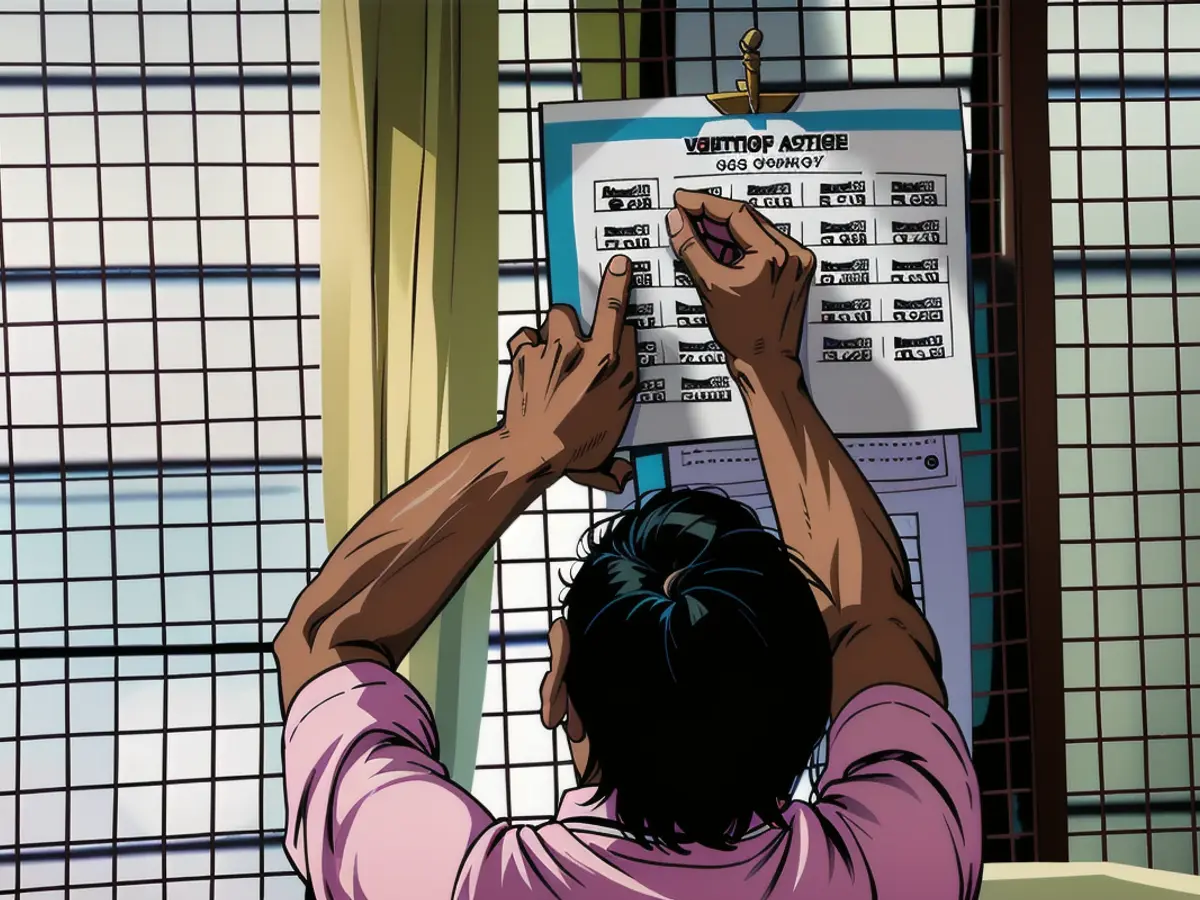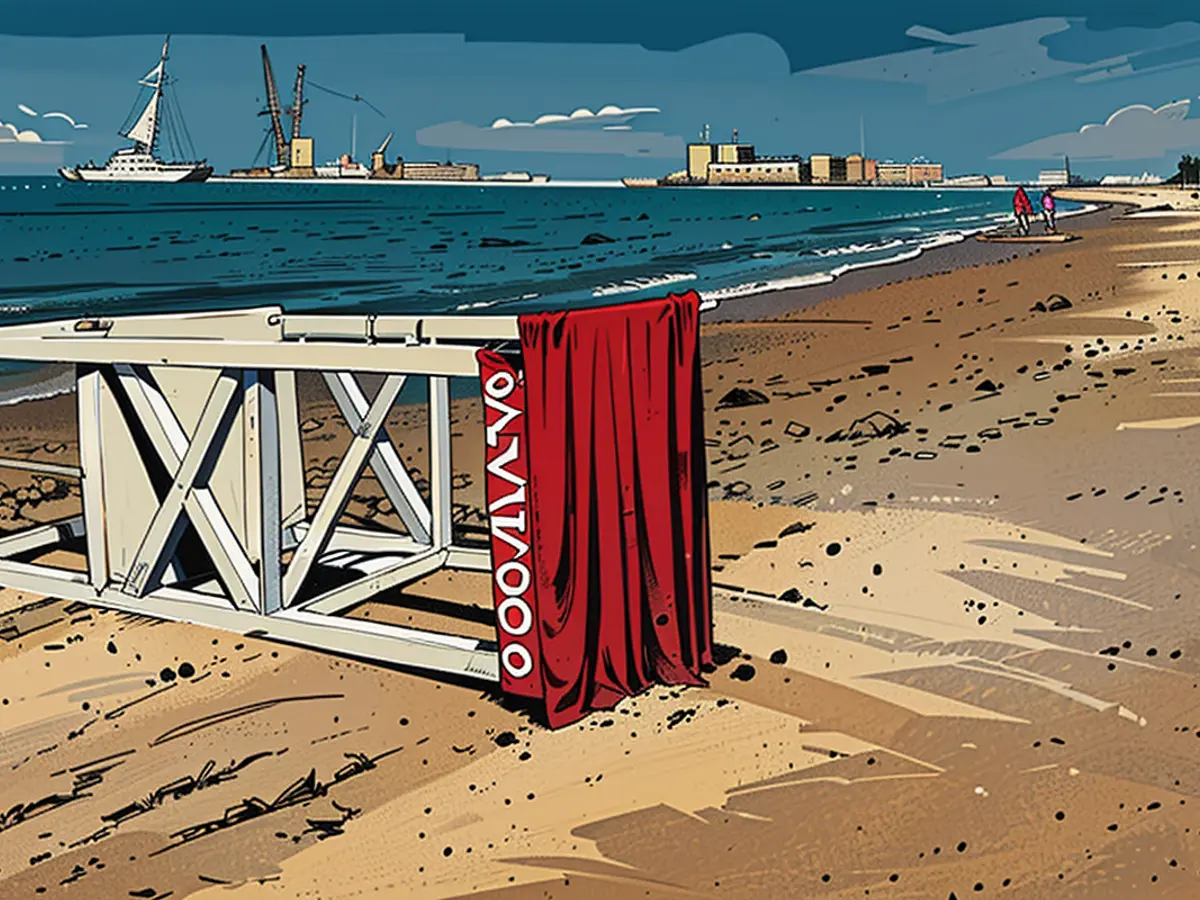India's parliamentary election - Prime Minister Modi celebrates success of his party in India's parliamentary vote.
India's current Prime Minister, Narendra Modi, has announced his party's victory in the recent parliamentary elections. The nation's people have shown their confidence in his government coalition for the third time in a row, according to Modi's statement on platform X.
Early vote counts predicted that Modi's Hindu-nationalist BJP would retain its position as the dominant party, but lose its previous absolute majority in the lower house. This would require the BJP to rely on its two coalition partners to form a government.
Although it seemed certain that Modi would continue to govern for another five-year term, Rahul Gandhi of the opposition Congress Party left the possibility of negotiations with two of Modi's coalition partners open. As a result, the stock market experienced its largest losses in four years, following Modi's setback.
Gains for the opposition
In the previous election, Modi's BJP secured 303 seats alone, significantly more than the necessary 272 seats for a majority. Alongside their allies, they achieved a total of 353 seats and a comfortable majority five years ago.
Modi's goal was to increase this majority to over 400 seats before this election. However, a landslide victory as he had envisioned did not occur. Rather, the opposition parties managed to make unexpected progress, according to pre-election forecasts. Modi would have made history as the second national leader in India, after Jawaharlal Nehru, the first Prime Minister of the country, to serve three consecutive terms.





